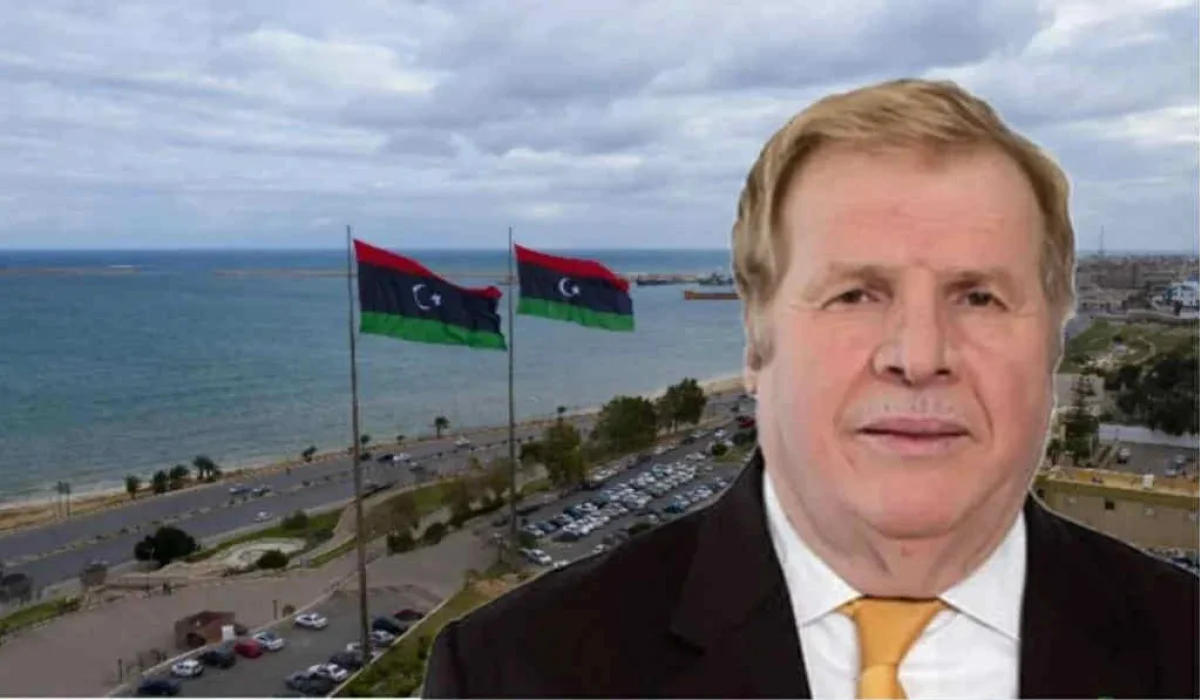
| Economic articles
Financial Analyst Khaled Al-Zantouti: “The Call to Float the Dinar… Is a Call to Drown the Entire Middle Class!!”
The financial analyst Khaled Al-Zantouti wrote an article in which he said:
In recent days, I have been struck by what some social media platforms and media outlets are publishing—numerous debates and discussions about whether or not to float the Libyan dinar. I see this as nothing more than a kind of theoretical and rhetorical luxury, simply because the time, circumstances, and economic situation are not at all suitable for discussing this issue (the matter of floating). With all due respect to the parties participating in the debate, whether from the academic/scientific side or from the commercial/pragmatic side, I believe it is more appropriate to devote these efforts and capacities to discussing our chronic economic problems: the collapse of the dinar and its causes and remedies, inflation and its impact on low-income groups, our disastrous consumption spending, our growing public debt and how to organize and repay it, the fragmentation of our budgets and governments, the distortions in our public finances beyond imagination, and the mismanagement of our resources and how to enhance and increase them, etc., etc.
Unfortunately, we have jumped to discussing the principle of floating the dinar when we are far from needing to discuss it under our current conditions. While I believe it is an established economic principle with its foundations and history, I found myself compelled to briefly weigh in on this matter to clarify my point of view. It may be wrong, but it remains a point of view.
Some believe that the law of supply and demand and the rate in Souq Al-Mushir reflects the true value of the dinar against the dollar. Here lies the dispute. How can we consider the parallel market (Souq Al-Mushir in Tripoli or Venice in Benghazi or others) as the true market value of the dinar against the dollar, when a limited group of speculators and big traders control the supply and demand for dinars? Isn’t this monopoly—or even oligopoly? Isn’t this a violation of the most basic rules of a free market economy?
Even if we adopt the theory of a free economy, the laws of supply and demand and their applications have conditions: full competition, no suppression of supply and demand, economic and political stability, etc. Unfortunately, we lack all of that. So how can we rely on supply and demand theory to determine the dinar’s value in Souq Al-Mushir while these fundamentals of a market economy are entirely absent?
It is known that those who control the supply of dollars in the parallel market are a group of traders and speculators, some of whom obtained dollars through suspicious letters of credit or corrupt channels. Even if they are few, they control the market according to their personal interests. Whoever calls for floating the dinar under these circumstances is either ignoring the bitter reality of our economy, which makes it impossible to apply any economic theory to determine exchange rates (especially free float), or he is pragmatic and personally benefiting (which is his right) since his accounts or assets are mostly in dollars. Thus, floating would serve his interests, as he knows the dinar will decline sharply, allowing him to acquire more assets and property, all while ignoring (perhaps in good faith) the reality of our national economy. Floating the dinar would inevitably cause the dinar to fall to unprecedented levels, leading to catastrophic consequences for citizens’ lives, especially since most of our consumption is imported. This would mean inflation unlike anything we’ve seen and a severe erosion of purchasing power.
Our economy relies on a single source of income—oil. We have no other export base. Oil prices and volumes are beyond our control. At any moment, oil may fall below $60 a barrel (a declared U.S. goal). According to recent published statistics, the value of dollar requests for various purposes reached nearly $5 billion in just two weeks!!! That is three times our expected oil revenue! Is this possible? Imagine demand at three times supply under the proposed float—exchange rates could double the current official rate or more. How would we compensate citizens’ salaries against inflation and currency collapse? Isn’t that a question worth answering?
What is the benefit of floating the dinar? Do we expect major foreign investment inflows? Massive export figures? A big influx of dollars into Libyan banks from the world (trusted globally with solid solvency)? None of this will happen under our current instability. On the contrary!
The poverty line will rise. Salaries will need to be increased to cope with inflation. We will enter an endless inflationary spiral. We will print local currency in denominations of 100 up to 1000 dinars. The dinar will end up in bundles (baraweet), just like what happened in Argentina, Zimbabwe, and Venezuela.
I would like to point out that, according to some recently published statistics, the poverty line in Egypt rose from 34% of the population before the full float of the Egyptian pound to 66% after the float—despite Egypt’s diversified income from exports, tourism, and remittances. What about us?
I fear that if we float the dinar, poverty rates in Libya will reach unprecedented levels, wiping out the entire middle class—something none of us want.
In my conviction, no country in the world applies the principle of absolute free float—not even the U.S. We know the Federal Reserve intervenes, openly or not, by injecting or withdrawing dollars from the market through Treasury tools. I even believe that the Fed’s intervention in setting interest rates is itself a forced intervention that undermines the theory of a free economy and free float, as it directly affects the supply and demand for dollars depending on rate changes.
Look at China, a global economic giant. It has not applied free float to the yuan but intervenes in one way or another to maintain its value and boost exports—despite constant U.S. objections. In my view, what is called “managed float” is nothing more than a modest description of a fixed exchange rate within a limited band of 7–10%.
Thus, in reality, there is no true currency float, even if some terms suggest otherwise. The best solution for the dinar is to fix its exchange rate through the Central Bank by setting an equilibrium rate based on a scientific model reflecting our economy’s macro and micro variables—one the Central Bank can defend at any time, with adjustments as necessary (positive or negative). I agree with those who say this requires accompanying policies to preserve the dinar’s strength against the dollar. These policies are many, chief among them eliminating corruption in all its forms and from all its perpetrators.
In conclusion, I fear that those who today call for floating the dinar will tomorrow say to us, once it is floated: “I had no authority over you except that I called you and you responded to me. So do not blame me but blame yourselves. I cannot help you, nor can you help me.”





